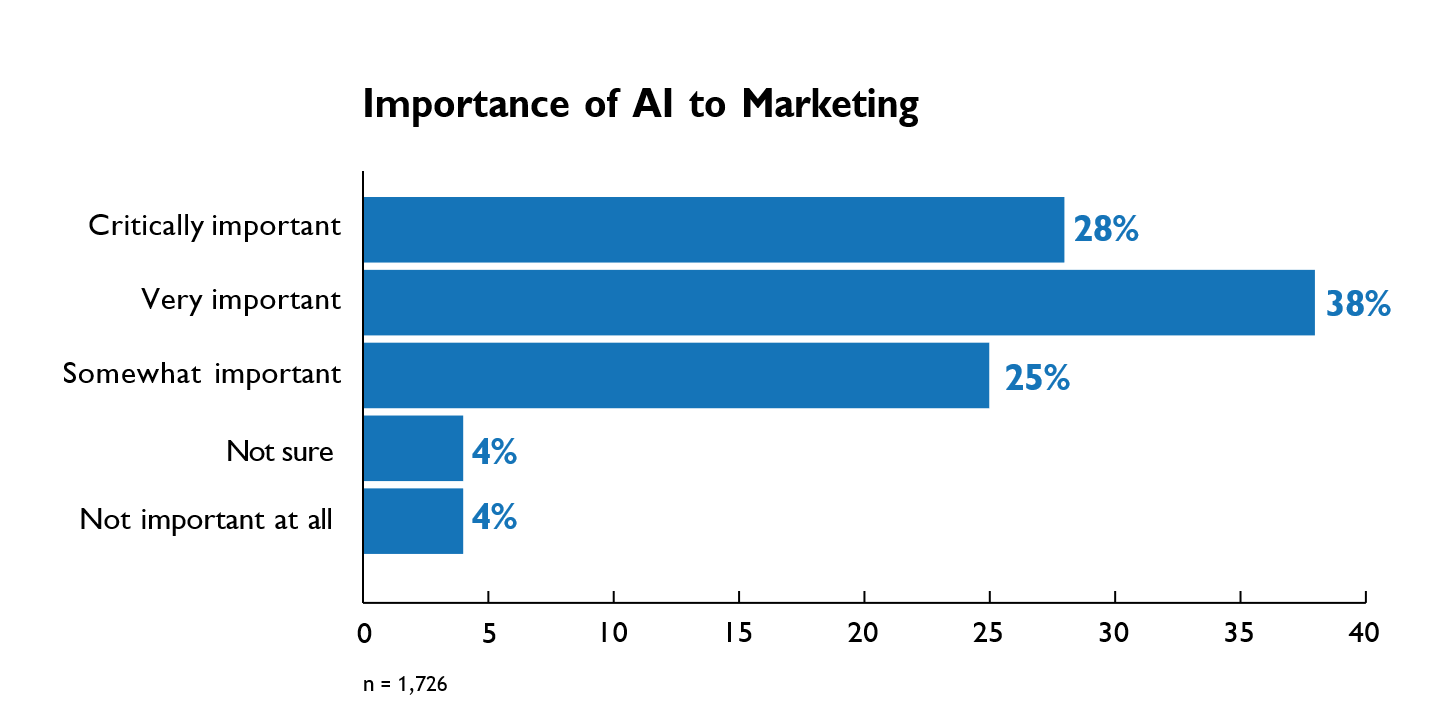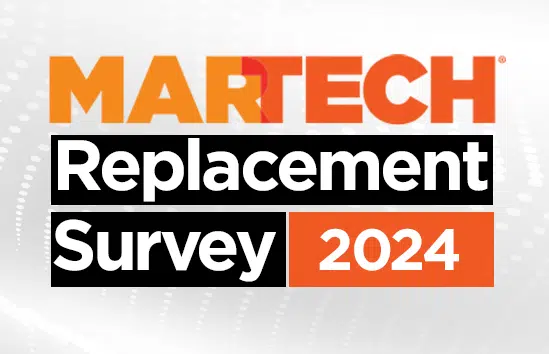While 99% of marketers say they’re personally using AI, 67% say a lack of training remains a barrier to its adoption at work — three percentage points higher than in 2023, according to a new survey by The Marketing AI Institute.
Just over a third of respondents (36%) said AI is now infused into their daily workflows — up 7 percentage points from last year, according to the 2024 State of Marketing AI Report. The number of people who “couldn’t live without AI,” jumped from 6% in 2023 to 15% today.
When asked if their organization offered AI training for the marketing team, 75% either said no (47%), that it’s in development (24%), or they’re not sure training exists (4%).
Familiarity breeds understanding
Despite the lack of training, use of the technology is improving peoples’ skills, as 61% reported they now have an intermediate-level understanding of AI, up from 54% in 2023; 16% said they have an advanced understanding, compared to 11% last year.
AI adoption by organizations continues to grow, with 51% reporting their marketing teams are piloting or scaling AI, compared to 42% last year.
Marketers really, really want AI to free up time: 80% said they want the technology to “reduce time spent on repetitive, data-driven tasks.” That’s 14 percentage points more than the next item on the list of things they want AI to deliver: “more actionable insights from marketing data.”
A whopping 78% believe that in the next three years, AI will handle more than a quarter of their marketing tasks; 34% expect at least half of their marketing tasks to be automated in the same timeframe.
More AI, fewer jobs?
Marketers are more pessimistic than ever about AI’s impact on marketing jobs, but there’s a surprising split in opinion between executives and those who use it.
Overall, 47% believe AI will eliminate more jobs than it creates in the next three years, seven percentage points higher than in 2023. Unsurprisingly, the number of people who think more jobs will be created rather than eliminated fell to 31%, five percentage points lower than last year.
Dig deeper: Why traditional marketing systems can’t keep up with AI and what to do about it
The people most likely to believe AI will eliminate more jobs are the people using it least: executives. More than half of CEOs/Presidents, CMOs and other C-suite types expect the technology to disrupt employment. However, only 40% of managers and entry-level employees think this will happen.
The survey gave people the opportunity to write in their concerns about AI. Many are worried that AI is developing and being deployed so fast that they won’t be able to keep up with it. Here’s some of what they wrote.
- “How fast everything is able to move now, allowing (ironically) little time for strategic or out-of-the-box thinking.”
- “The speed of change into an unknown, unregulated space, in which no one knows the limits of AI (and some won’t care) which supplants our natural, evolved and profoundly human sense of the world and our relationship to it.”
- “That it advances faster than we, as humans, can follow with.”
- “I’m concerned that the company I work for will fall behind because they are afraid of AI.”
- “How fast it is coming at us; separating the hype from reality; balancing the need to stay updated and learn/deploy without wasting time and cash on tech that will be obsolete — that is, understanding it will take time for the major players to emerge and some features will be ‘baked in’ to larger platforms. In short, confusing marketplace rn.”
Methodology
The survey is based on responses to 25 questions about AI and its role in marketing and business, as well as information on the demographics of the survey takers. Respondents were not required to answer all the questions to submit their responses. 1,784 respondents completed at least some of the survey, with the vast majority (73%) completing the full survey.
The highest percentage of respondents (23%) identified as directors. The next highest role was manager (22%), then CEO/President at 20%. The majority (51%) of respondents work at companies with $10 million or more in revenue and 53% of respondents work at organizations with 50 or more employees.
It can be downloaded here. (Registration required.)
Related stories
New on MarTech
@media screen and (min-width: 800px) { #div-gpt-ad-6013980-7 { display: flex !important; justify-content: center !important; align-items: center !important; min-width:770px; min-height:260px; }
}
@media screen and (min-width: 1279px) { #div-gpt-ad-6013980-7 { display: flex !important; justify-content: center !important; align-items: center !important; min-width:800px!important; min-height:440px!important; }
}
.avatar-border { border: 3px solid #ee3024; } .badge-color { border: 1px solid #ee3024 !important; background-color: #ee3024 !important; }
About the author







